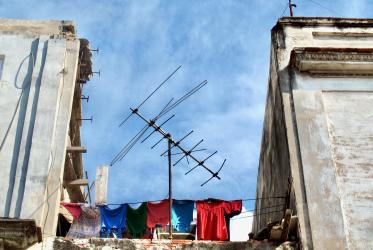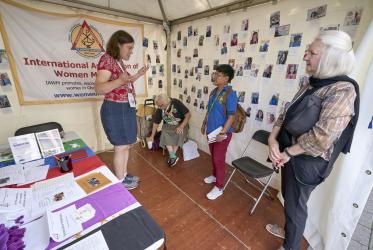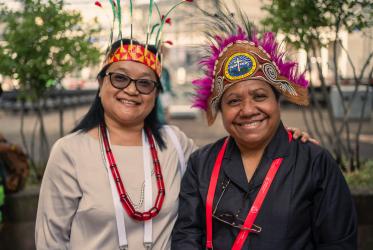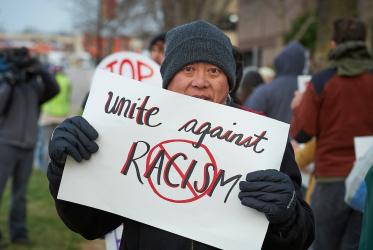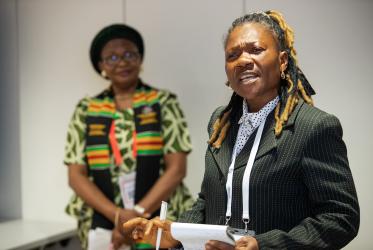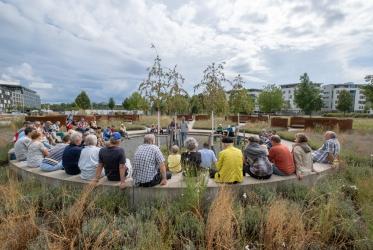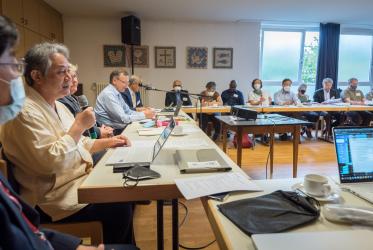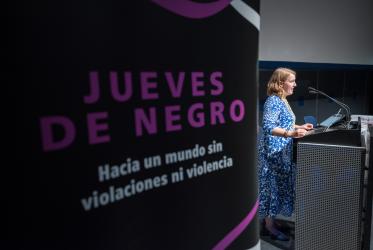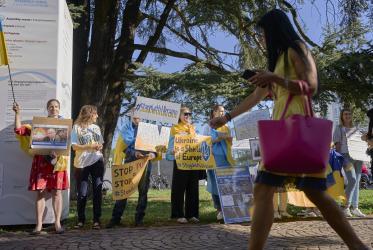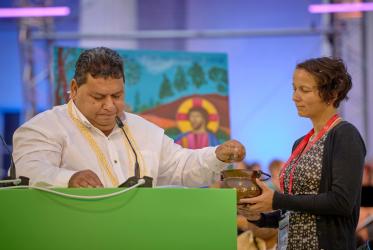Displaying 41 - 60 of 485
Pan-African women tell stories that celebrate who they are
15 September 2022
Workshop explores how interreligious dialogue brings trust and respect
15 September 2022
Water as a divine gift, and justice issue
08 September 2022
Ukraine: Responding to humanitarian need
08 September 2022
Are you a #ThursdaysinBlack trailblazer?
08 September 2022
WCC releases minute on consequences of the 2020 Nagorno-Karabakh war
08 September 2022
The earth is the LORD's… and the Lord is claiming it back
07 September 2022
Promoting human dignity through art
06 September 2022
